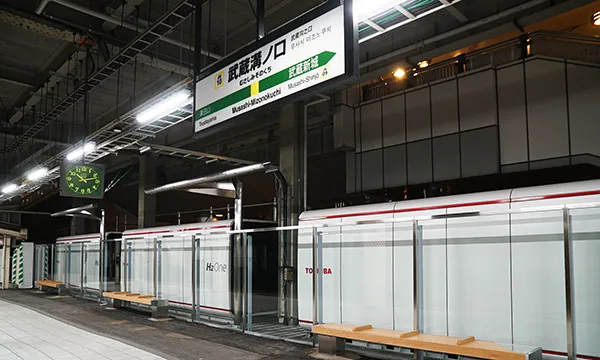
Toshiba's H2One is making the hydrogen energy future a reality for the industry
The advanced hydrogen-based autonomous energy supply system is now providing round-the-clock, carbon-free power to Japanese hotels, train stations, stadiums and offices.
Last year, when East Japan Railways renewed one of its stations to make it more eco-friendly, they selected Toshiba’s H2OneTM hydrogen system. Musashi Mizonokuchi Station, from which 80,000 people take the Nambu Line train every day, depends on H2OneTM to provide uninterrupted, off-grid energy supply in case of emergencies to light parts of the station concourse and its lavatories. On normal days, the H2OneTM produces hydrogen and generates electricity to lower consumption of main electricity. In winter, hot water from the system is even used to warm benches at the station. Toshiba’s H2EMS™ hydrogen energy management system also provides full control of overall operations, including hydrogen production and power generation and storage.
Since the past year, Toshiba’s flagship and most advanced hydrogen system has been rolling out in more locations and across industries in Japan. Toshiba’s H2OneTM is about to be installed at the Tokyu Construction Institute of Technology, another milestone for the hydrogen energy system as it will be the first time it is being used as a “net zero energy” building solution. With the H2OneTM installed, the institute will move one step closer to becoming a zero emission building.
The Miyagi prefectural government also chose H2OneTM for its Rakuten Kobo Stadium in Sendai, the Tohoku region’s largest city. It is a 23,000-seat stadium and home field of the Tohoku Rakuten Golden Eagles pro-baseball team. On normal days, the H2OneTM will generate electricity to power the stadium’s display, and during emergencies, it will keep the regional radio station in the stadium in operation to provide essential information for disaster recovery.
Carbon-free with renewables and hydrogen
H2OneTM generates hydrogen energy from renewable energy, which Toshiba executives believe makes it a viable carbon-free option in a world that is increasingly aware of and moving away from excessive carbon dioxide emissions.
“Today, the world faces the serious issue of global warming and carbon dioxide emissions. Many governments and companies have pledged to do their part to lower their carbon footprint,” said Hiroyuki Ota, General Manager of Toshiba Energy Systems & Solutions Corporation.
“As the hydrogen can be produced from inexhaustible water and can be stored long-term until electricity is needed, H2OneTM serves as a good solution for communities and industries requiring a consistent and steady supply of energy, as well as environmentally friendly solutions,” Ota added.
Hydrogen energy can enhance disaster readiness of communities. Disasters bringing down lifelines have left a deep awareness of the need for communities to take effective measures in response to emergencies and disasters.
Believing in the potential of its own product, Toshiba recently opened an integrated Hydrogen Application Center in Western Tokyo, built around the H2OneTM hydrogen power system that uses renewable energy to produce hydrogen, which is then used by fuel-cell forklifts operating in the complex.
The center serves as a showcase of carbon dioxide-free operations involving fuel-cell vehicles. To help manage the operations, Toshiba also developed and installed its H2EMSTM system, which has a new hydrogen demand prediction function that forecasts supply requirements for each fuel-cell-powered vehicle. The center is then able to save precious space allotted for hydrogen storage.
Ota said the beauty of H2OneTM is its flexibility, with most sectors finding use for its ability to provide clean and stable energy from otherwise unstable renewable energy for the full 24 hours. “The system can be deployed to locations as varied as hospitality facilities, markets, ports and harbours, airports, bus terminals, and more,” Ota said.
“This is because Toshiba’s fuel cell product line-up includes units that go up to 100kW.” Toshiba’s 100kW pure hydrogen fuel cell system powers refrigerators to keep flowers and vegetables fresh in a wholesale market in Shunan city in Yamaguchi prefecture, and it helps recycle hydrogen from Tokyo-based chemical firm Showa Denko to provide electricity to a nearby new hotel, Tokyu REI Hotel.
“With each new project and order won, Toshiba widens the scope of hydrogen energy and helps to prove its potential as a real-world solution,” said Ota. “As the company continues to make advances, it looks forward to contributing to a low-carbon future where hydrogen plays a crucial role in power generation.”
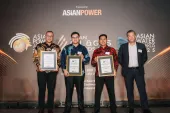


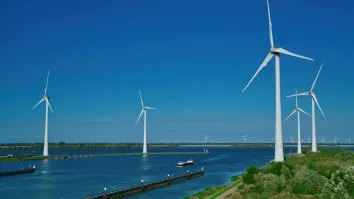
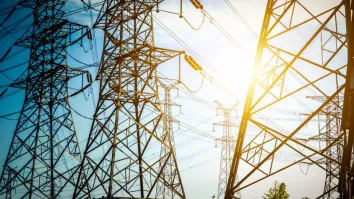
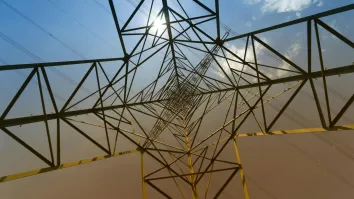













 Advertise
Advertise







